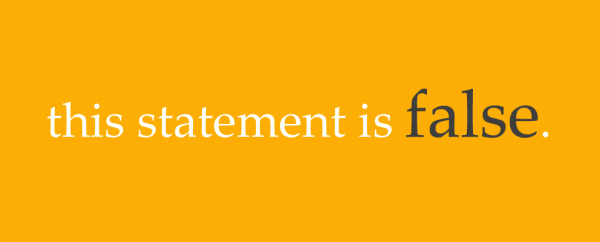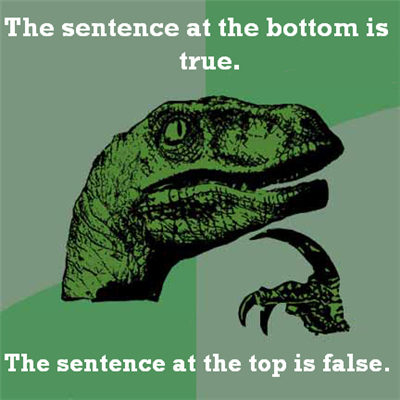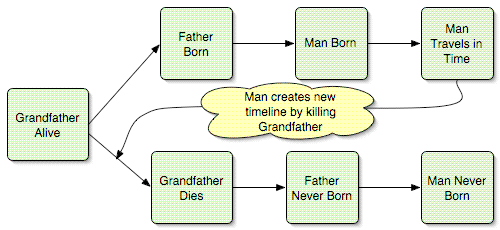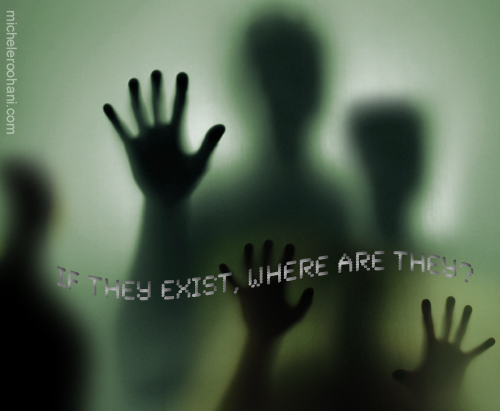Paradoxes, from logic ones about the truth and falsehood of statements, and those involving time and space travel, showing up in popular culture through science fictions, have existed for a very long time, tormenting ancient Greek Philosophers, and have caused a lot of headaches ever since.
Liar Paradox
One sentence, so many headaches.
Trying to assign to this statement a classical binary truth value leads to a contradiction (seeparadox). If “this sentence is false” is true, then the sentence is false, which would in turn mean that it is actually true, but this would mean that it is false, and so on without end. Similarly, if “this sentence is false” is false, then the sentence is true, which would in turn mean that it is actually false, but this would mean that it is true, and so on without end. The problem of the liar paradox is that it seems to show that common beliefs about truth and falsity actually lead to a contradiction.
Card Paradox
A variant of the liar paradox.
Suppose there is a card with statements printed on both sides:
| Front: | The sentence on the other side of this card is TRUE. |
| Back: | The sentence on the other side of this card is FALSE. |
Trying to assign a truth value to either of them leads to a paradox.
- If the first statement is true, then so is the second. But if the second statement is true, then the first statement is false. It follows that if the first statement is true, then the first statement is false.
- If the first statement is false, then the second is false, too. But if the second statement is false, then the first statement is true. It follows that if the first statement is false, then the first statement is true.
The same mechanism applies to the second statement.
Omnipotence Paradox
If a being can perform any action, then it should be able to create a task which this being is unable to perform; hence, this being cannot perform all actions. Yet, on the other hand, if this being cannot create a task that it is unable to perform, then there exists something it cannot do.
Answer?
The lifting a rock paradox (Can God lift a stone larger than he can carry?) uses human characteristics to cover up the main skeletal structure of the question. With these assumptions made, two arguments can stem from it:
- Lifting covers up the definition of translation, which means moving something from one point in space to another. With this in mind, the real question would be, “Can God move a rock from one location in space to another that is larger than possible?” In order for the rock to not be able to move from one space to another, it would have to be larger than space itself. However, it is impossible for a rock to be larger than space, as space will always adjust itself to cover the space of the rock. If the supposed rock was out of space-time dimension, then the question would not make sense, because it would be impossible to move an object from one location in space to another if there is no space to begin with, meaning the faulting is with the logic of the question and not God’s capabilities.
- The words, “Lift a Stone”, are used instead to substitute capability. With this in mind, essentially the question is asking if God is incapable, so the real question would be, “Is God capable of being incapable?” If God is capable of being incapable, it means that He is incapable, because He has the potential to not be able to do something. Conversely, if God is incapable of being incapable, then the two inabilities cancel each other out, making God have the capability to do something.
Theseus’s Paradox
A paradox that raises the question of whether an object which has had all its components replaced remains fundamentally the same object. Its origins are in the late 1st century, most notably recorded by Plutarch in Life of Theseus. He asked whether a ship which was restored by replacing all and every of its wooden parts, remained the same ship. There have been many proposed resolutions, among them 4-D.
Grandfather Paradox
A proposed paradox of time travel first described by the science fiction writer René Barjavel in his 1943 book Le Voyageur Imprudent (Future Times Three). A time traveler went back in time to the time when his grandfather had not married yet. At that time, the time traveler kills his grandfather, and therefore, the time traveler is never born when he was meant to be. If he is never born, then he is unable to travel through time and kill his grandfather, which means he would be born, and so on.
A number of hypotheses have been postulated to avoid the paradox, such as the idea that the past is unchangeable, so the grandfather must have already survived the attempted killing (as stated earlier); or the time traveler creates – or joins – an alternate timeline or parallel universe in which he was never born. There’s also the Self-Healing assumption, which means that no matter what the time traveler does to effect the future, his actions won’t change what has happened and the universe will find a way to balance his actions.
Bootstrap Paradox
Time travel usually creates the biggest of problems. In this one, through time travel, information or objects can exist without having been created. After information or an object is sent back in time, it is recovered in the present and becomes the very object/information that was initially brought back in time in the first place.Because of the possibility of influencing the past while time traveling, one way of explaining why history does not change is to posit that these changes already are contained self-consistently in the past timeline. A time traveler attempting to alter the past in this model, intentionally or not, would only be fulfilling his or her role in creating history, not changing it.
Best example: A man builds a time machine. He goes into the future and steals a valuable gadget. He then returns and reveals the gadget to the world, claiming it as his own. Eventually, a copy of the device ends up being the item the man originally steals. In other words, the device is a copy of itself and it is not possible to state where the original idea for the device came from.
When you start involving people, which makes it similar to the Grandfather paradox but in a different way (travelling back in time and impregnating your mother in her younger days, thus becoming your own father).
Fermi Paradox
From time travel to space travel, or lack of it. High estimates of probability of the existence of extraterrestrial civilization and humanity’s lack of contact with, or evidence for, such civilizations.
Basic points:
- The Sun is a young star. There are billions of stars in the galaxy that are billions of years older;
- Some of these stars likely have Earth-like planets[2] which, if the Earth is typical, may develop intelligent life;
- Presumably some of these civilizations will develop interstellar travel, a technology Earth is investigating even now;
- At any practical pace of interstellar travel, the galaxy can be completely colonized in a few tens of millions of years.
But no convincing evidence of this exists. Furthermore, no confirmed signs of intelligence elsewhere have been spotted, either in our galaxy or the more than 80 billion other galaxies of the observable universe. Hence Fermi’s question, “Where is everybody?
For little less heavy philosophy, here are 14 Philosophical Concepts as Minimalistic Art.

















